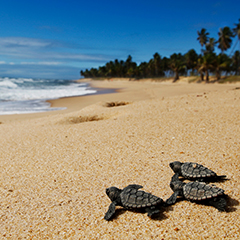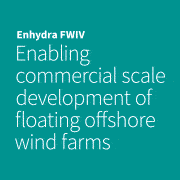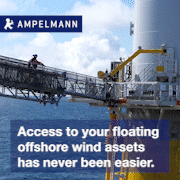Legacy Programme to support turtle conservation in Saudi Arabia confirmed ahead of April 2021 race
31 March 2021, London: Extreme E, the revolutionary electric off-road racing series, has revealed its Legacy Programme plans in Saudi Arabia, confirming it will support turtle conservation along the Red Sea coastline in association with Ba’a Foundation, an organisation that focusses on conserving the environment through initiatives entailing preserving endangered species, natural habitats and historical sites.
Alejandro Agag, Founder and CEO of Extreme E, said: “I’m really pleased Extreme E can support this crucial legacy initiative in Saudi Arabia. This series is of course about thrilling racing, but we are also shining a spotlight on climate and environmental crisis’ happening all over the world and trying to make a lasting difference.
“The Red Sea is home to some of the most diverse ecosystems in the world and we have worked closely with the Ba’a Foundation to identify this important project based around endangered sea turtle conservation; a truly worthy and exciting initiative that will start receiving our support immediately.”
Extreme E will support the protection of the endangered Green turtle and the critically endangered Hawksbill turtle, which are under threat for a variety of reasons including:
- Entanglement in fishing gear
- Illegal trade of eggs, which are considered a delicacy in some countries, and turtleshells
- Coastal development including building on nesting beaches
- Plastic debris
- Climate change causing rising sand temperatures, creating a gender ratio skew as turtle gender is determined by the temperature; the higher the temperature, the more likely the turtle is to be female, as well as rising sea levels which can erode nesting beaches and flood nesting sites, killing the eggs
One of the nesting places the project focusses on is Ras Baridi, located 50 kilometres north of Yanbu city in Saudi Arabia. Ras Baridi is a major nesting site of Red Sea and Indian Ocean significance. Sea turtles are born and return about 30 years later to reproduce, and then around every five years subsequently.
Unfortunately, due to the damage to the beach, created by rising sea level and increased beach erosion, the turtles return to find that they cannot climb the cliff left by beach erosion, or when they do, perish when falling off in returning to the water after nesting. Or it may be that their nest has flooded due to rising sea level relative to that at the time of their birth, over three decades ago. In 2019, there was a 90 per cent mortality of eggs due to flooding of the nests in high water seas.
These problems were detected in a research project led by Prof. Carlos M. Duarte, Distinguished Professor at King Abdullagh University of Science and Technology and recently appointed member of Extreme E’s Scientific Committee, and brought to the attention of the Ba’a Foundation.
Extreme E will be supporting the turtle conservation through beach fencing, beach management and monitoring, careful nest relocation and, ultimately, improvements such as raising the level of the beaches to a suitable height with imported sand for turtle nesting and successful egg hatching, as well as education.
Bader Alrabiah, Executive Director at Ba’a Foundation said: “We are delighted to collaborate with Extreme E on this exciting project which demonstrates our commitment to Kingdom values in embracing the future while also preserving our culture and protecting our environment.
“Saudi Arabia is home to both a very young population which is eager for world class events and sporting activities. However, it also has a natural habitat for some of the most beautiful and rare species such as the endangered turtles we are trying to protect through this unique and creative initiative. This initiative is part of a full program at Ba’a Foundation to conserve marine life in both Saudi coasts – Red Sea and Arabian Gulf”.
Jamie Chadwick, Veloce Racing driver added: “The Legacy Programmes are integral to the series and myself and the Veloce Racing team are wholeheartedly supportive and committed to playing our part. We are fully embracing this Legacy Programme in Saudi Arabia and we look forward to seeing the positive results.
“It’s been great speaking to the scientists and learning more about the issues in this region. I just hope that our learnings and our actions really help to make a tangible difference. Whilst we are here to race and win, we are also here to help facilitate and communicate vital changes that need to be made. We need to do this together; we need to drive change.”
Extreme E, a brand new electric motorsport, will start racing in Saudi Arabia on 3 April 2021. The series will visit five locations – Saudi Arabia, Senegal, Greenland, Brazil and Patagonia, all representing a different environment – desert, coastal, arctic, rainforest and glacier. Each have been impacted by environmental issues such as climate change, and Extreme E aims is to leave a long-lasting positive impact and inspire change through the power of sport and the promotion of clean energy transport solutions, which help reduce the effects of climate change.
To learn more about Extreme E, visit – www.Extreme-E.com




























